Posted on 9/27/2016

When thinking about brake maintenance, most people think of the mechanical parts of the brakes, like the discs and brake pads. While these are very important, an often overlooked aspect of brake upkeep is the brake fluid. Brake fluid changes are needed from time to time (though not all the time); changing the brake fluid could prevent failures and accidents. Did you know that when you hear of “unexplained brake failure” as the cause of the accident, chances are it could be related to a brake fluid problem? Here are some important tips and factors regarding brake fluid changes. Why Brake Fluid Changes Are Necessary Brake fluid works with your car’s hydraulic braking systems to transfer force into usable pressure, thereby amplifying the car’s braking force. If brake fluids are deficient, or if there is something wrong with the fluid itself, it could sacrifice the car’s ability to stop when needed. Thus, a brake fluid change can help prevent a loss of braki ... read more
Posted on 11/4/2014
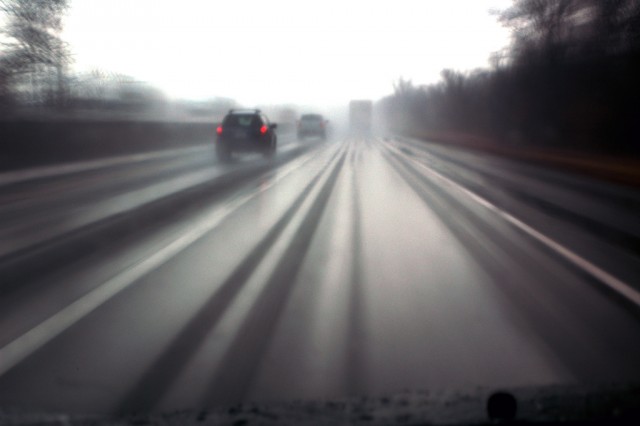
It’s been an odd summer for San Diego, and we’re supposed to have a wet winter. Are you ready for the slick roads and unexpected occurrences while driving? When the roads are wet, stopping times are increased because of a loss of friction on the roadway, and sometimes because of water on your brake rotors. Have you inspected your rotors and brake pads for signs of excessive wear? What you should look for: Brake pad wear Most brake pads have “wear detectors,” but sometimes those can be inaccurate or your pads might not have them. In a full brake system inspection, techs will take a look at the material left on your brake pads using a micrometer and making sure your pads will stop you in an emergency. Brake rotor wear Brake rotors not only wear down over time, but they can also warp. If you have had a serious emergency stop recently or forgot to take your parking brake off, you might want to have your rotors checked for warpage. If rotors are allowed to get ... read more
Posted on 11/6/2013
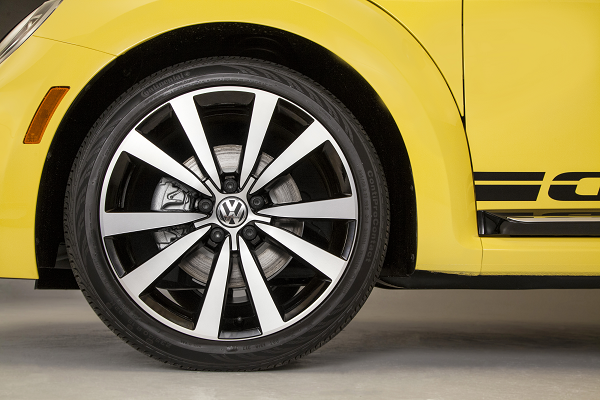
Did you know that every time you go in for an oil change and tire rotation that you should also be prepared for the possibility of brake maintenance, brake repair or other brake work? Well, as your tires come off every time they're rotated and your car is in the air having its oil changed it just makes sense for any sensible mechanic to check the brake pad life, look for fluid leaks and make sure the brake fluid reservoir is topped up with a dense looking brown fluid. That stuff helps you stop faster and is thus known as “brake fluid.” The one thing that is totally unpredictable from car to car and even from model to model in a brand’s lineup is how quickly your brake pads will wear out each time. Some drivers get fewer than 10,000 miles on a set of pads while others get well over 50,000 miles. That all depends on the quality of the materials selected by the manufacturer of ... read more
Posted on 12/19/2012
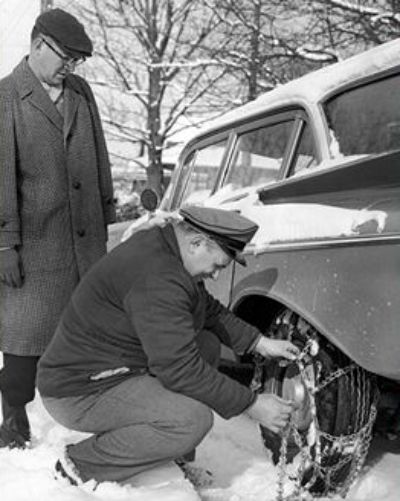
The winter solstice is just two short days away, which means we'll officially be in the swing of winter. And we've certainly been feeling the winter already with all this rain! Fortunately, we live in San Diego so we don't have the same perils of winter that other cities and states have, like ice and snow and crazy winds for three months. But that doesn't mean you shouldn't be taking precaution and getting your car ready for this new season. Here are the top tips for how to get your car ready for winter, and you can always reference these tips on driving in the rain as often as you need to. Winterize Your Car Check your battery: Car batteries can be reduced by cold weather, and even though chances are slim it won't be getting terribly cold in San Diego it's still a good idea to check your battery capacity and the battery wires. If there is ... read more
Posted on 12/10/2012
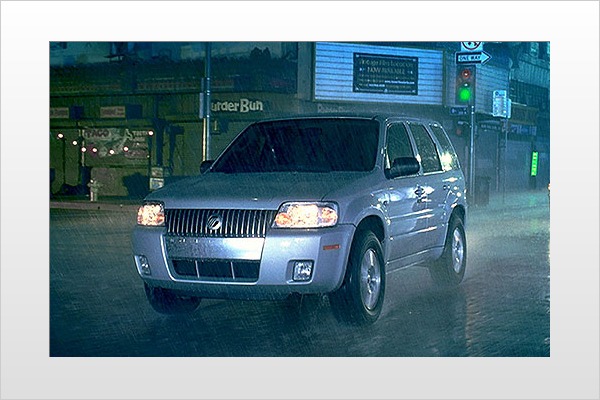
We may still be in San Diego, but even paradise gets a little rain. With the rainy season upon us (and those menacing rain clouds overhead more frequently now), it's time for a refresh on how to safely drive around in the rain. Any San Diego driver who's ever been on a freeway when it's raining can attest that traffic seems to slow to a crawl or stop completely, sometimes even when it's just sprinkling. Frustrating, right? Hopefully everyone will follow these tips and we can all get to work and home safely. Stick to the speed limit: Rainy weather is not the time for speeding no matter how late you are because that's how accidents happen. You don't need to drive extra slowly, either, unless there is torrential rain, or you could get rear-ended. If it's the first rain of the season the roads will be extra slick with oil coming out of the cracks, so be extra careful. Stay out of the fast lane: There wi ... read more
Posted on 10/29/2012
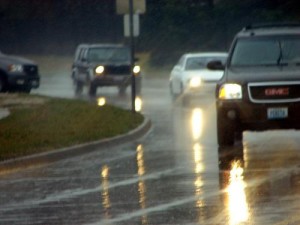
Although it's officially been the fall season for some time now, it's only just now starting to feel like autumn in San Diego. However, this means cool weather - and rain! - is not far behind. As preparation for the season, make sure your car is in prime condition. When the seasons are a-changing, it 's always a good idea to take your car to a local mechanic for a check-up. Things to look at include the battery, antifreeze level, heater, brakes and defroster. In addition, have any other miscellaneous fluids checked, especially if the last maintenance check was over summer. This will ensure the basic functions are in order and you won't be subject to unpleasant surprises. Another important place to focus on is the tires. Be sure there is enough tread left to handle the slick roads and rotate the tires. Rainy weather also calls for the use of ... read more
Posted on 3/29/2012

A day doesn't go by without clients bringing in their vehicles and describing some type of strange or new noise. We cannot begin to explain how important it is for us to diagnose these noises to properly identify the source. Just imagine getting into a car that you don't drive on a daily basis; you may have a hard time pinpointing the noise of concern. Many times, we have driven a vehicle and identified multiple noises that seem abnormal to me. only to find out the client's concern is just the "new" noise, and not the other previous noises. Then, we have the exceptions to the rule, like this case of the noisy Volkswagen. A brief call from the client explains that the brakes in the VW have been making some abnormal noises. Now the brake pedal feels low, and they feel it may be unsafe to drive, so they've made the decision to tow it in. A great decision, indeed! The vehicle arrived, and as stated, it not only had no brakes, but when the brakes were applied, the noise was so loud that it ... read more
Posted on 1/25/2012
Brakes really aren't optional equipment. And taking care of them isn't optional either. A regular brake inspection is on every car's maintenance schedule. An inspection will check your brake system and let you know if there are any problems. Of course, if you're having trouble with your brakes, get your car into a San Diego or Tierrasanta service center right away. And watch out for these problems: Low or spongy brake pedal Hard brake pedal A brake warning light that stays on Constantly squealing or grinding brakes Vibrations or clunking sounds when you apply your brakes There are two types of brakes: disc and drum. Disc brakes have a rotor that's attached to the axle. Calipers straddle the rotor, kind of like the brakes on a bicycle. Drum brakes are more common on back wheels. Pads, called shoes, push against the inside of the drum to slow the vehicle. There are several things that need to be serviced on the brake system. First, the brake pads and shoes wear out with use, and ... read more
Posted on 8/26/2011
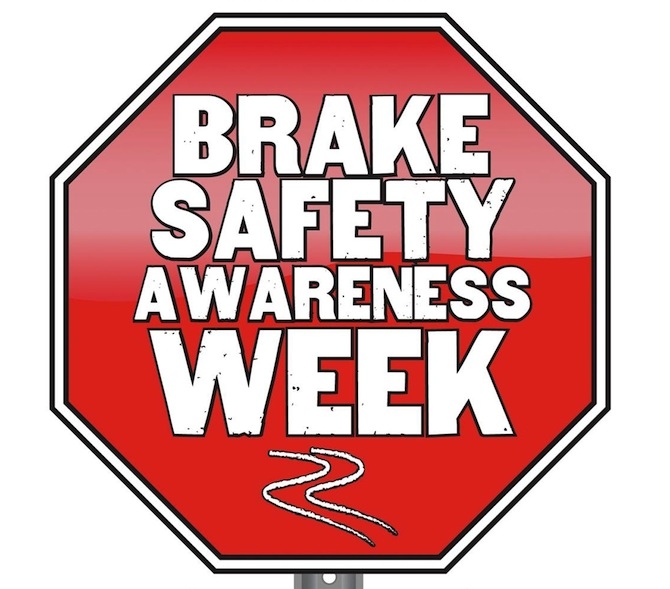
August 20-28 is Brake Safety Awareness Week, and it's a great time to make sure that your brakes are still delivering the stopping power you need, when you need it. Summer is winding down, and it's a sure bet that brakes will start seeing more when fall and winter hit. That means it's better to be prepared with a proactive brake check and, if necessary, brake service, rather than risking life and limb on the roads. Brakes are one of the most hard-used parts of any vehicle, and everything from braking too hard to riding the brakes or the brand of car you drive can have an impact on brake life. Some signs that a brake repair may be required include loud squealing, grabbing, loss of stopping power or significant pulling to one side when you make a stop. If you haven't had a brake service and check recently, Brake Safety Awareness Week is the perfect time to get your brake lining, brake fluid, rotors and hoses look ... read more
Posted on 5/11/2011
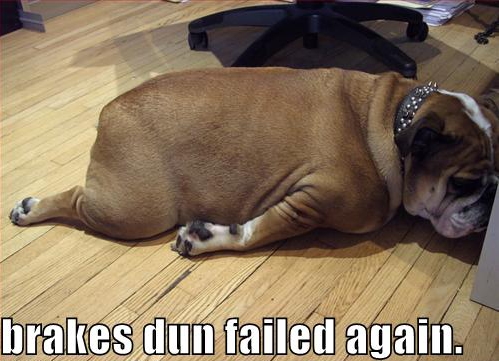
Brake maintenance, including brake pad replacement, is something that needs to be done on any vehicle periodically in order to ensure that it's not only safe to drive, but also that it stops as smoothly as possible. Brakes should be monitored with each regular maintenance check that a car undergoes, since there are a number of brake issues that can arise. Often, the first indicator of a brake problem will be that the pedal goes down too far toward the floor before the car begins to slow down, which can be due to a number of issues, including low brake fluid level or contaminated brake fluid. If the pedal is too firm, you may have vacuum problems. Brake pad replacement can also be necessary, and signs that this is required will be quite obvious. If you your brakes begin to squeal when stopping, if your car pulls to one side, or if you have to pump the brake pedal to stop, a brake pad replacement is something to ... read more